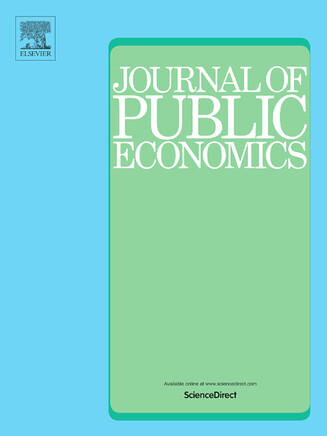HIERARCHICAL ACCOUNTABILITY IN GOVERNMENT
ABSTRACT
This paper studies a setting where a relatively uninformed voter holds a policymaker accountable through an informed intermediary. In equilibrium the voter uses the intermediary to insulate the policymaker from pandering incentives when the voter's policy expertise is low or the policymaker's congruence is high. The voter can thus enjoy the benefits of bureaucratic expertise without forfeiting electoral responsiveness. We examine the model's predictions using U.S. city-level data, and find that hierarchically-accountable managers reduce popular city employment, and adjust it more flexibly, than electorally-accountable mayors. The estimated, incentive effects are smaller in cities with high voter expertise and larger during election years, and are robust to instrumentation by precipitation shocks that influenced early 20th century manager government adoptions for reasons obsolete today. (C) 2016 Elsevier B.V. All rights reserved.
Statistics
Web of Science Times Cited
22

